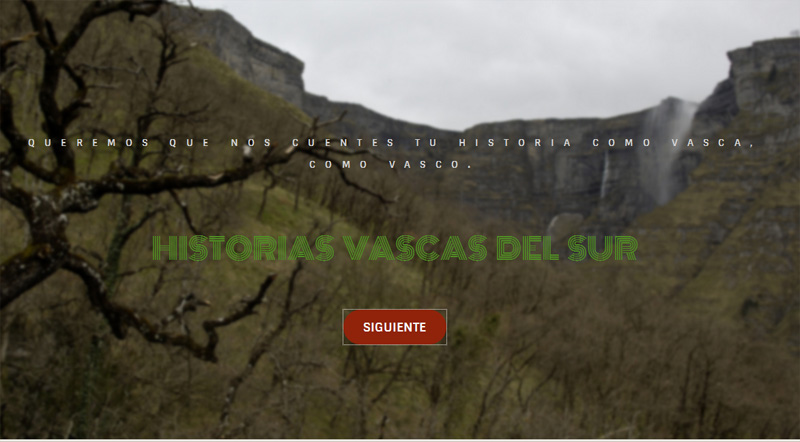Donostia-San Sebastian. Argentine Paula Almirón-Chamadoira, currently researcher at the Department of Audiovisual Communications and Publicity, at the University of the Basque Country is promoting from the Leioa campus a project that covers a wide field: all of South America, specially Argentina.
“Basque Stories from the South” proposes that Basques in the Diaspora share their experiences with the world, but with a different touch: they create their own testimonies and share them via various media like Twitter, Facebook, the internet…Paula explained the project to us.
-What is the “Basque Stories from the South” project about?
-The idea is to tell anecdotes about how we see Basques in Argentina, about how Basque culture influences life, with the uses of Basque words in Argentina --“txapela” for example that is called there 'boina vasca', or the word “cuhaa” means dog house (from Basque 'kutxa')-- or about how the Argentine Diaspora lives and how they keep in touch through activities that are carried out in the Basque clubs.
The particularity of this Project is that the format is trans-media that is using two or more media to tell the story. For example, the same story can be told via video, or on a website.
-What led you to start it?
-The Project arose because there is a Basque-Argentine culture, and there is a real sense of belonging in Argentina in relation to the Basque culture that isn’t very well-known in the Basque Country. It also emerged so that Basques in Argentina tell their stories, and put them into words or living images that are their own. This process is very helpful fot the children, grandchildren and great-grandchildren of those Basque Immigrants. To leave home and to still feel part of it in the distance is something that you transmit from generation to generation, it is a feeling that doesn’t go away and it surrounds what it means to be Argentinean.
The project also allows other Basques to learn these stories so they can see that you can be Basque in Argentina also. In fact, very few people know that there are more Basques in Argentina than in Euskadi.
"Basque Stories form the South" falls within Transmedia Week, an open international event, where we would like to present the project from Euskadi, and use these stories from the Diaspora as a networking format. It seemed to me to be the perfect topic to participate. I think that the trans-media digital storytelling reproduces the live naturalness, flexibility and nomadic nature of bertsolaritza.
-What kind of stories are you looking for?
-Works must be trans-media digital stories, so they have to be done on two or more media or digital platforms (digital video, animations, websites, cartoons, Twitter, Facebook, apps, videogames, digital photos, etc.) to tell a unique story.
Trans-media stories are a kind of narration that uses multiple medias and interfaces, in a story where the spectator has an active role in the process in the story’s expansion and diffusion. The spectator becomes the producer, participates and commits to it.
The theme are Basque men and women in Argentina, and so Argentinian individuals and organizations can participate with as many works as they would like.
-Who is involved? Institutions that support it?
-Our main support comes from the Delegation of Euskadi in Argentina-Mercosur, it’s an independent project but they have given me support and have helped to spread the word in Argentina.
-The deadline is October 15th. For someone who would like to participate, what do they need to do?
-They need to register the work on our website or send an email to inscripcion@historiasvascasdelsur.org; or to Mariana Satostegui at the Delegation of Euskadi in Argentina-Mercosur, marianasatostegui@ej-gv.es.
-Once you have gathered these testimonies, what is the next step?
-The presented works will be exhibited in November in La Plata (Argentina) at the Basque Argentine National Week and at Transmedia Week in Euskadi and finally on the Internet.






 Send to a friend
Send to a friend Add comment
Add comment








